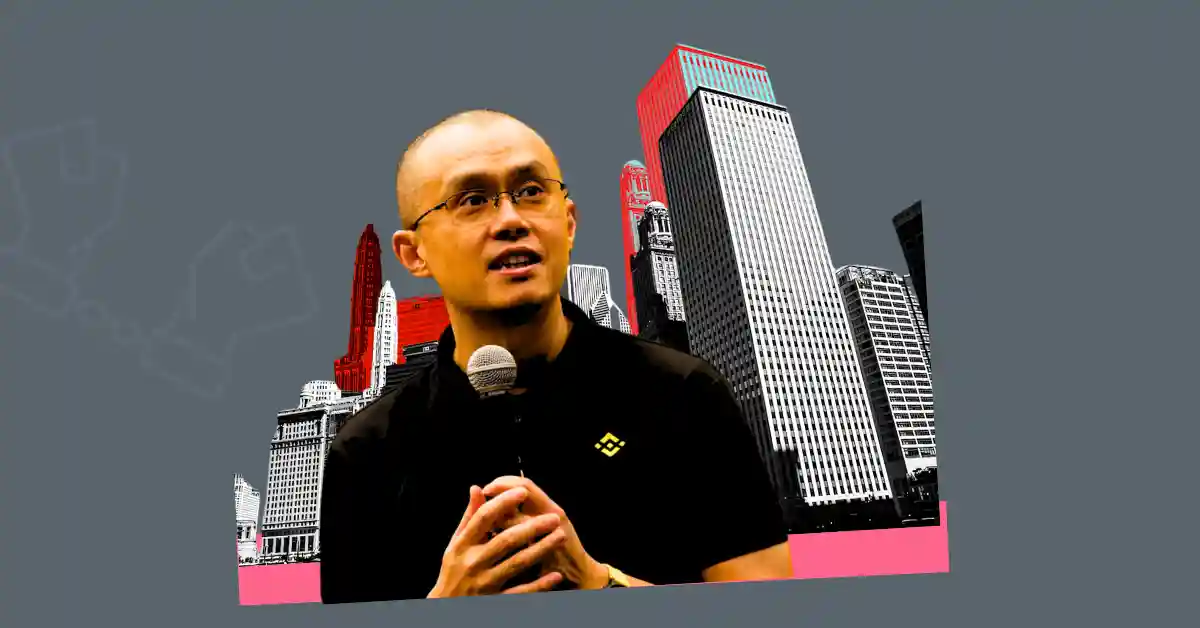
The Crypto King’s Political Gambit: CZ’s Pardon Play and the Uncharted Waters of Crypto-Politics
The cryptocurrency world thrives on volatility—not just in token prices, but in the reputations of its most visible players. Enter Changpeng Zhao (CZ), the founder of Binance, whose recent four-month prison stint and $4.3 billion settlement with U.S. regulators for anti-money-laundering violations left the industry reeling. But the real plot twist? CZ’s audacious pivot from inmate to political strategist, courting a presidential pardon from Donald Trump. This isn’t just a personal redemption arc; it’s a case study in how crypto’s disruptors are rewriting the rules of political lobbying—with a side of high-stakes dealmaking.
—
The Trump Card: Why CZ’s Pardon Bid Matters
CZ’s overtures to Trump aren’t just about wiping his slate clean. They reveal crypto’s uneasy dance with political power. Traditional finance has centuries of regulatory playbooks; crypto, by contrast, is a Wild West where rules are drafted on the fly. By aligning with Trump—a figure known for deregulatory instincts and trade-war bravado—CZ signals a calculated bet: that political clout can soften regulatory blowback. His public praise for Trump’s “business-first” approach isn’t incidental; it’s a strategic nod to crypto’s libertarian roots, repackaged for populist appeal.
But here’s the kicker: rumors swirl that the Trump family might invest in Binance.US. If true, this blurs lines between political patronage and market advantage, raising eyebrows about whether crypto regulation could become a game of “who you know.” CZ denies direct negotiations, but in an industry built on trustless systems, the mere suggestion of backroom deals fuels skepticism.
—
Crypto’s Political Playbook: From Anarchy to Access
CZ’s maneuver reflects a broader industry shift. Once content to operate in regulatory gray zones, crypto giants now lobby governments, fund super PACs, and schmooze politicians. Why? Survival. The SEC’s crackdowns and Congress’s waffling on crypto laws have forced players like Binance to seek allies in high places. Trump, with his pro-business brand and 2024 ambitions, is a natural ally—especially if his camp sees crypto as a wedge issue to rally younger, tech-savvy voters.
Yet this courtship carries risks. Politicizing crypto regulation could backfire, painting the industry as a partisan battleground rather than a neutral innovation hub. Imagine a future where approvals hinge on campaign donations, not compliance. For an ecosystem already battling “scam” stereotypes, that’s a PR nightmare waiting to happen.
—
The Ripple Effect: What CZ’s Saga Means for Crypto’s Future
Beyond Binance, CZ’s pardon quest sets precedents. If successful, it could embolden other crypto execs to view political pardons as a get-out-of-jail-free card—literally. It also underscores crypto’s identity crisis: Is it a rebellion against centralized power, or just another industry chasing regulatory carve-outs?
The stakes are cosmic. A Trump pardon might buy Binance breathing room in the U.S., but it won’t erase deeper scrutiny of its compliance gaps. Meanwhile, regulators worldwide are watching. If America’s crypto rules appear swayed by political favors, expect Brussels and Beijing to double down on their own frameworks—potentially fracturing the global market further.
—
The Verdict: Power, Pardons, and the Price of Influence
CZ’s play for a Trump pardon is more than a personal Hail Mary; it’s a stress test for crypto’s relationship with power. The industry’s future hinges on whether it can balance political pragmatism with its founding ethos of decentralization. One thing’s clear: In the high-stakes poker game of crypto regulation, CZ just went all-in. Whether he’s bluffing or holding a royal flush depends on how much politics—and presidents—are willing to bend.
*Game on, dude.*
